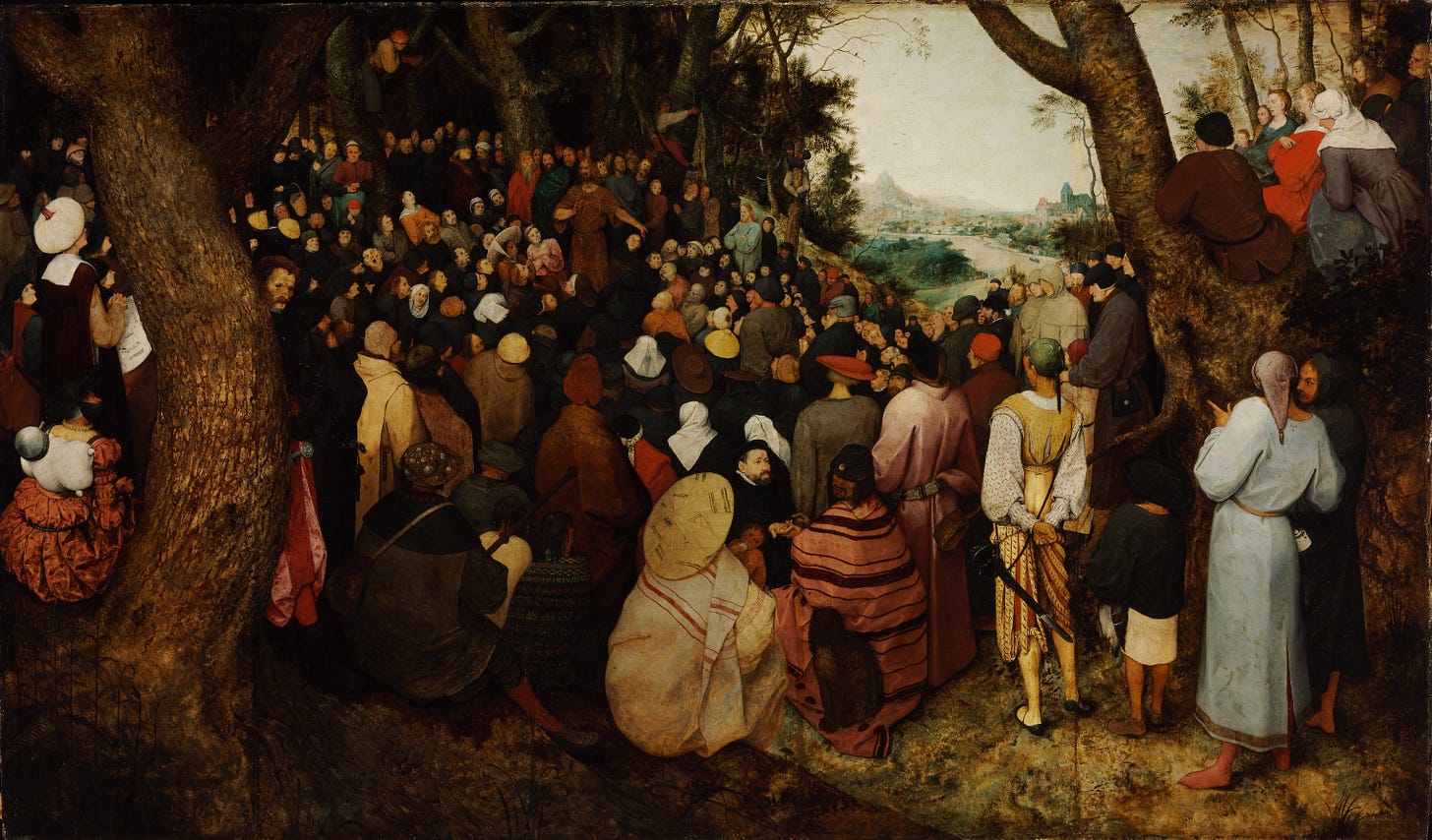John the Baptist is clearly very special. On 24th June, we celebrate the Birth of John the Baptist – and on 29th August commemorate his beheading. Having more than one date in the Church of England calendar puts him in an elite class with Jesus, Mary and the Apostle Paul. Moreover, 573 churches in England are dedicated to John the Baptist, including my own in the town of Yeovil.
In fact, let’s start in Yeovil since there is someone raised here who will help us understand John the Baptist: Ian Botham. He became one of the true greats of the game of cricket in the late 1970s and early 80s as a fast bowler, a destructive batsman and a brilliant slip fielder who took amazing catches. His finest hour was at Headingley in Leeds in 1981 when he scored an astonishing century to bring England back from the dead against Australia. It was one of the greatest comebacks in cricketing history.
Since Botham, English players have always been compared to him. Andrew ‘Freddie’ Flintoff was one. Was he the ‘next Ian Botham’? Not quite. And then along came Ben Stokes, an aggressive bowler, a canny, powerful batsman and great fielder. In some ways, he surpasses Botham being a great captain too, guiding England to some remarkable victories, including a World Cup victory. Most poignant, however, is a match in 2015 against the old enemy, Australia, at Headingley where Botham made history. It was like the game of cricket was symbolically repeating itself and presenting us with one even greater than the one who has gone before.
I could write about cricket all day, but the ‘greater Botham’ maps surprisingly closely onto our understanding of John the Baptist. If we look at the beginning of Mark’s gospel, we see John:
… baptizing in the wilderness and preaching the baptism of repentance for forgiveness of sins. All the country of Judea and all those of Jerusalem went out to him. They were baptized by him in the Jordan river, confessing their sins. John was clothed with camel’s hair and a leather belt around his waist. He ate locusts and wild honey. He preached, saying:
“After me comes he who is mightier than I, the strap of whose sandals I am not worthy to stoop down and loosen. I baptized you in water, but he will baptize you in the Holy Spirit.”
In those days, Jesus came from Nazareth of Galilee, and was baptized by John in the Jordan. (Mark 1:4-9)
John says a mightier one is coming. He will baptise – literally ‘wash’ – people with the very spirit of God. And along comes Jesus, who is baptised in the Jordan.

But Jesus is not John the Baptist 2.0. We are not thinking big enough. John the Baptist is curiously dressed “with camel’s hair and a leather belt around his waist.” He resembles the great prophet Elijah, who stood up to corrupt kings, as did John the Baptist and was beheaded for his trouble.
Elijah was succeeded by Elisha, a prophet who performed twice as many miracles as Elijah, having received a double portion of the spirit. One such miracle in 2 Kings 5 was cleansing a leprous foreign general, Naaman, whom he commanded to wash in the river. Which river? The Jordan. Mark presents John the Baptist as a new Elijah. And Jesus as one even greater: Elisha, supercharged with a double portion of the Spirit.
Moses and his successor
There is a lot going on in these brief verses in Mark. John the Baptist is not just being presented as an Elijah, but also as a Moses. There’s a clue in verse 2 in Mark 1:
“Behold, I send my messenger before your face,
who will prepare your way before you:
The footnotes in your Bible will tell you this is a quotation from Malachi 3:1. And it is. But there’s a very similar verse in Exodus 23:20. And if you read on in Exodus, as you should always do when looking up references, the words in Mark take on a whole new meaning. The LORD says to Moses leading the Israelites in the wilderness:
“See, I am sending an angel ahead of you to guard you along the way and to bring you to the place I have prepared. Pay attention to him and listen to what he says. Do not rebel against him; he will not forgive your rebellion, since my Name is in him.”
An angel will go forth into the promised land. His name will be in him? What does that mean? Who is it that goes into Canaan and conquers it? Joshua, who would be known as Yeshua. That is literally the same name as Jesus, also known as Yeshua in Hebrew.
Can you name two things about Joshua? He miraculously crosses the River Jordan with the ark of the covenant. Then he defeats the impregnable city of Jericho before conquering the whole land of Canaan.
John the Baptist is Moses. Jesus is one even greater than Moses’s successor Joshua, bringing the Kingdom of God in a way that is every bit as unstoppable.
The moral of this story is not that ‘you are Jesus! Go for it!’. No. We long to be more like him. And if we are following him, we can rejoice in excited anticipation that his purposes for us and his kingdom cannot be stopped.
When we doubt this, when our eyes and phones tell a story of constant chaos corruption and panic, we can look back to Christ, look up to the heavens and look forward to the full establishment of the Kingdom of God. That’s what John the Baptist - who gets a double portion of days in the calendar - would have wanted. One far greater than he has come.
If you enjoyed that, and you’d like another at lunchtime next Friday for free, join the mailing list:
Tonight, on Friday 20th June, I’ll be at Christ the King in Bradley Stoke near Bristol with my show, God, the Bible and Everything (in 60 minutes). Get tickets here. The show after that is in the village where I was raised, and the church in which I was baptised, St George’s, Beckington.
I’d also love more bookings for October and November. Can you make that happen in your church? Do get in touch. More info here:
Have you checked out The Wycliffe Papers yet?
Mainstream media meets demand for renewed interest in Jesus by stepping up campaign of misinformation about Jesus.
“We are keen to address this sudden surge of curiosity about Jesus of Nazareth,” said Kathy Arnold, religious affairs editor for The Atlantic Herald. “We used to run loads of great material about how Jesus was a good man, a misunderstood preacher and nothing more. But for the last ten years, no-one was paying attention. They are now! This is the perfect time for us to recycle all of those old myths…
Read more here:






